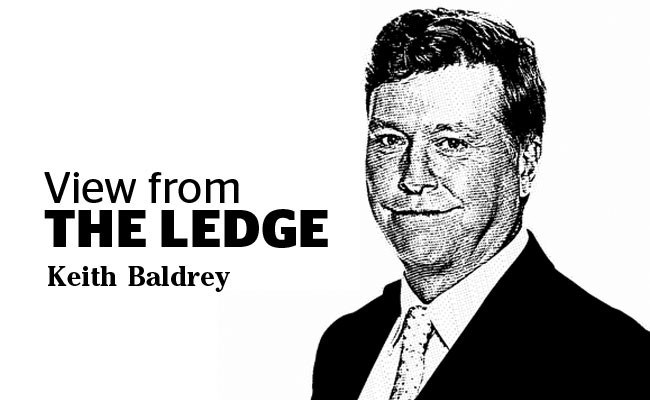The only certainty that exists in B.C. politics right now is that we know the date when the legislature is being recalled.
But that’s about it.
There is a throne speech planned for that first day, June 22. But we don’t know for sure yet whether it will be delivered because it is not absolutely certain the 87 MLAs can find a way to accomplish the first order at hand: electing a Speaker from among themselves.
For the past little while, the political parties have been playing a game of political chicken, as the B.C. Liberals at first said members of their caucus would send a letter to the clerk’s office advising them their names shouldn’t be considered for the position.
If there is no Speaker, the house can’t operate and another election would have to be held.
This may explain why Mike de Jong, the B.C. Liberal government house leader, did drop broad hints last week that his side would follow convention and put up one of their own members for the job, but he didn’t come right out and confirm that would happen.
But let’s say they resolve the Speaker issue (I think they will) and get to the throne speech. The next bit of uncertainty is when there will be a vote on it.
There could be the normal week or so of debate, and then a vote. Or, the Opposition could move an amendment voicing rejection of the speech and that could be debated for a while.
In short, while it appears the B.C. Liberal government is in imminent danger of falling out of power, the exact date on which that may occur is far from clear.
Perhaps the biggest uncertainty of all is knowing precisely how Lt.-Gov. Judith Guichon is viewing all this and how she intends to respond to various scenarios that could unfold.
It is common wisdom that, if the Clark government does indeed fall, that she turn to NDP Leader John Horgan to see if he can form a stable government.
The key word here, from Guichon’s point of view, is “stable.”
That’s all she really cares about. She wants to see strong evidence that whoever she turns to can provide that stability on an ongoing basis.
Can a one-seat majority provide that stability?
In weighing an answer to that question, consider how the B.C. legislature operates. The house spends most of its time in the “committee” stage to examine and debate pieces of legislation and the spending estimates of government ministries.
But under the rules of the Westminster parliament system, the Speaker doesn’t sit in committee and in fact leaves the chamber.
When that happens, the B.C. Liberals will have the same number of MLAs – 43 – as the combined forces of the NDP and the B.C. Greens.
But the NDP and Greens would need to appoint a deputy Speaker to chair that committee.
Suddenly, the B.C. Liberals would have a numerical advantage: 43 seats to 42 (the deputy Speaker only votes in the event of a tie).
Does that kind of scenario provide stability?
According to B.C. Green leader Andrew Weaver, his side is toying with changing the rule that says the Speaker must not sit in committee.
During those negotiations his party had with the NDP, Weaver disclosed to reporters that changing the “standing orders” (the legislature rule book) was very much on the table.
But an arbitrary change of such a fundamental rule may be seen as a naked power grab, and who knows how the lieutenant-governor would view such a move. Maybe another election hovers into view (or maybe not).
For two parties with the smallest majority possible to start changing the rules governing how the legislature works to suit their political survival clash with public opinion as well (which may explain NDP leader’s John Horgan’s refusal to give me a yes/no answer last week when I asked him if his side was going to try to change those rules).
The house returns June 22.
We know that for sure, but not much more, and all this uncertainty may last quite a while yet.
Keith Baldrey is chief political reporter for Global BC. Keith.Baldrey@globalnews.ca
What are your thoughts? Send us a letter via email by clicking here or post a comment below.



